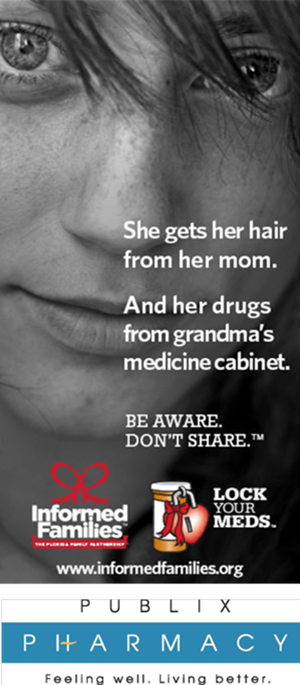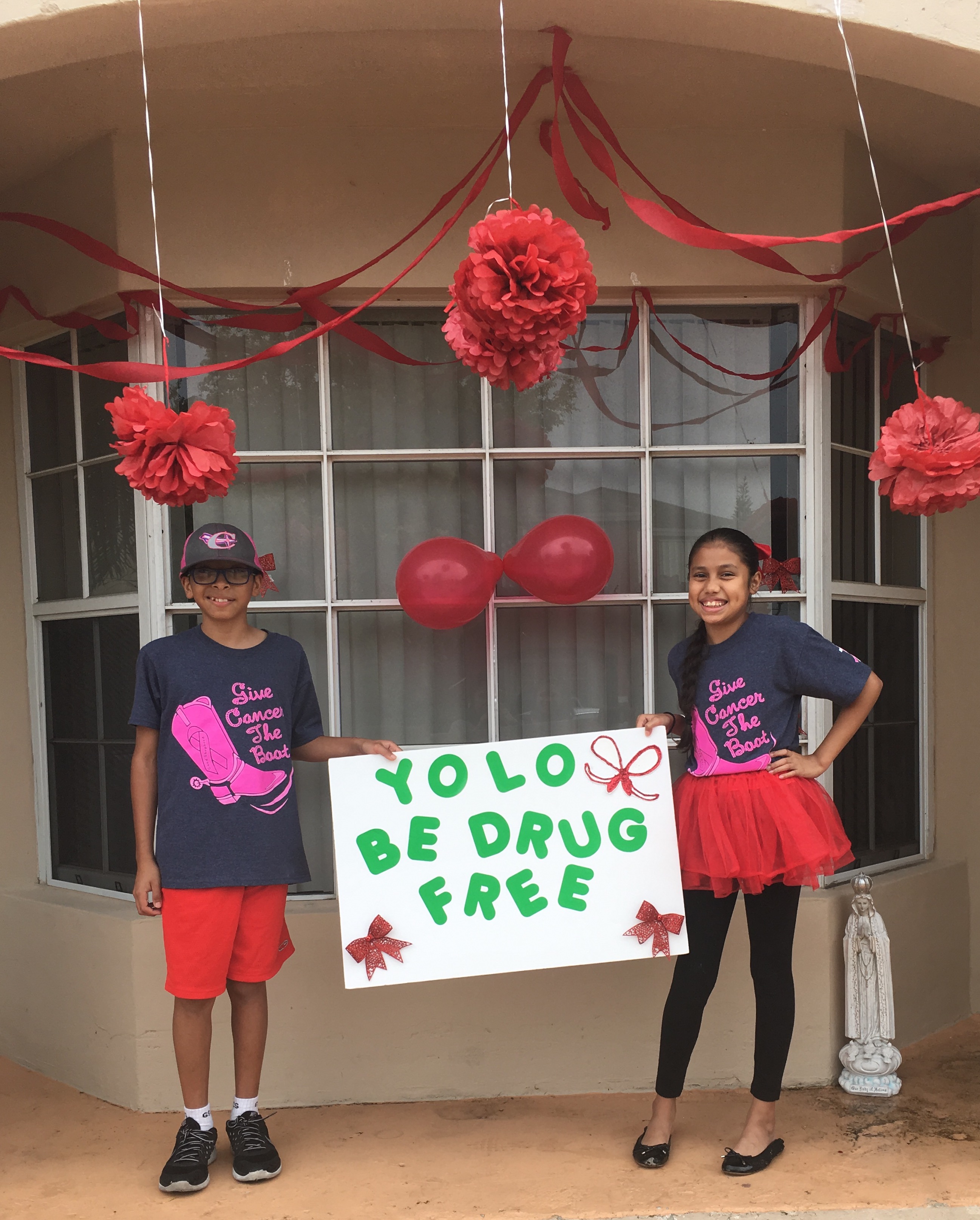When you walk into your local Publix Pharmacy in January, please thank the pharmacist and store manager for helping to prevent prescription drug abuse!
Once again, Publix is partnering with Informed Families to promote an important new years message: Lock Your Meds. The Lock Your Meds campaign, created by the National Family Partnership and sponsored by Informed Families in Florida, educates adults about the importance of securing medication to keep them out of the wrong hands.
Lock Your Meds asks individuals to secure their medication, take regular inventory to ensure nothing is missing, safely dispose of unused or expired medication and share the message with friends and family.
The campaign will be featured in 1,022 Publix Pharmacy stores across Southeastern United States. Each Publix Pharmacy store will have in-store counter signage and printed pharmacy receipts with a Lock Your Meds Message. This is the fifth year in a row that Publix, the fastest growing grocery chain in America, is collaborating with Informed Families to reduce prescription drug abuse in Florida's communities.










